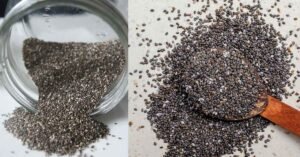
Menopause and anger toward husbands is a common but often misinterpreted experience. Many women experience mood fluctuations, irritation, and even hostility during menopause, which can cause issues in intimate relationships. Couples can get through this phase together if they are aware of these emotional changes.
Anger Toward Husbands and Menopause: An Understanding
Menopause is a significant phase in a woman’s life. It brings hormonal changes that can affect both her physical and emotional well-being. One of the challenging effects of these changes is the increasing of anger, especially directed at close family members, including husbands.
What Causes Mood Swings and Anger During Menopause?
- Hormonal Shifts: The drop in estrogen levels during menopause is one of the main reasons for mood swings and irritability. Estrogen helps regulate mood by influencing neurotransmitters like serotonin. It controls feelings of happiness and calm. When estrogen drops, it interrupts this balance which causes anger and frustration more common.
- Physical Discomfort: Common symptoms during menopause are hot flashes, night sweats, and sleep disturbances. These physical challenges add to the stress, leaving women feeling fatigued and irritable.
- Emotional Changes: Menopause is also a period of emotional reflection. Women may feel sadness, anxiety, or a sense of loss as they transition to a new stage of life. These feelings can sometimes turn into anger or resentment which are often directed at the people closest to them.
Mood Changes During Menopause That Impact Marriage

Menopausal mood swings can significantly affect relationships, particularly marriages. Here are some typical ways that this occurs:
• Enhanced Irritability: During this critical period, many women report feeling easily agitated. Little things that used to be little can now seem overwhelming. As a result, frustration results.
• Less Patience: It’s more difficult to maintain patience when you’re tired and sleep deprived. This typically occurs when juggling social obligations, talks, or home duties. Interactions between partners may suffer as a result of this impatience.
• Communication Gaps: Misunderstandings and poor communication can result from mood fluctuations. Both parties may become frustrated if there is unclear communication. in order to make conflict resolution more difficult.
Why Husbands Are Frequently the Target of Anger
During menopause, husbands are frequently the target of anger. Both parties may perceive it as unfair or misleading. Nonetheless, there are certain causes for this.
Emotional Triggers and Hormonal Variations
• Changes in Estrogen Levels: Women’s emotions may be triggered by changes in estrogen levels. As a result, one could feel powerless. Strong reactions can result from even small problems, making it more difficult to keep things in perspective.
• Stress Amplification: During menopause, routine stressors such as social engagements or home chores can seem lavish. A wife may feel abandoned and experience irritation and rage if her husband fails to identify these stressors.
The Role of Empathy in Marriage During Menopause
Support and empathy are crucial in helping both partners overcome this phase. Following are the ways husbands can show empathy and understanding:
- Practice Active Listening: Husbands can practice active listening. They should focus on their partner’s words without offering immediate solutions. Often, women simply need a safe space to express their feelings.
- Be Patient and Compassionate: Husbands should understand these emotions stem from physiological changes rather than personal choices. So that it may foster compassion. Patience goes a long way in helping both partners feel understood.
- Understand the Triggers: Menopause can make certain situations feel overwhelming. For example, clutter or sudden schedule changes can create extra stress. Husband should avoid or reduce this kind of scenario. Otherwise it may trigger the anger of the wife. reduce them.
Managing Menopause Anger in Marriage
While hormonal changes are unavoidable, there are ways to manage anger and improve the marital relationship during menopause.
Strategies for Creating a Calming Environment
- Promote a Relaxing Atmosphere: A peaceful, calm environment can help reduce stress. This might mean decluttering the home or setting up a relaxing space for winding down.
- Encourage Sleep and Rest: Since insomnia and night sweats often disrupt sleep during menopause, prioritizing good sleep habits can help. For instance, dim lights, comfortable bedding, and minimal noise can create a soothing environment for better rest.
Seeking Professional Help When Needed
- Therapy and Counseling: Both individual and couples’ counseling can help find out emotional challenges during menopause. A therapist can offer coping techniques and guidance on communication, which can benefit both partners.
- Consulting a Doctor: Some women find relief through medical treatments like hormone replacement therapy (HRT). A healthcare provider can help assess whether HRT or other treatments might help manage symptoms.
Strengthening the Marriage During Menopause

Menopause can be a time to strengthen the marital bond, even with its challenges. By working together, both partners can grow closer and more understanding.
Focus on Education and Understanding
- Learn About Menopause Together: Knowledge can help remove misunderstandings and misconceptions. Reading about menopause’s effects on mood and relationships can make it easier for husbands to understand and empathize.
- Try New Ways to Connect: Menopause can be an opportunity to explore new activities together. Whether it’s enjoying a shared hobby, planning a date night, or spending quiet time together, intentional connection can deepen the relationship.
Use Humor to Ease Tensions
- Find Humor in Daily Life: Laughter can help couples handle difficult moments and maintain positivity. Whether through light-hearted jokes or sharing funny moments, humor can make challenging times feel lighter.
- Celebrate Small Wins: Acknowledge positive moments, even small ones. Celebrating small achievements can create a positive atmosphere, reinforcing that both partners are in this together.
Hormone Replacement Therapy (HRT) and Alternative Treatments
Hormone Replacement Therapy and other treatments can help some women manage the emotional effects of menopause.
Consider HRT as an Option
- Benefits of HRT: Hormone replacement therapy helps balance estrogen levels, potentially reducing mood swings, irritability, and physical discomfort. However, it’s essential to weigh the pros and cons with a healthcare provider, as HRT may not be suitable for everyone.
- Alternative Approaches: Herbal supplements, meditation, acupuncture, and vitamins like magnesium and vitamin D can support emotional health during menopause. Consulting a healthcare professional before starting any new treatments is advisable.
Lifestyle Adjustments to Ease Menopause Symptoms
- Exercise and Nutrition: Regular physical activity can help stabilize mood and reduce stress. A balanced diet rich in vitamins and minerals supports both mental and physical well-being.
- Relaxation Techniques: Practices like yoga, meditation, and deep breathing can help ease anxiety and improve mood. Relaxation helps create a positive environment for managing emotions and connecting with loved ones.
Practical Tips for Couples Facing Menopause Challenges
1.Mutual Understanding and Patience
• Acknowledge the Impact of Menopause: It is important for both spouses to recognize the mental and physical changes that come with menopause. Misunderstandings can be avoided by having candid conversations about feelings and expectations.
• Avoid Having Outbursts For myself: Menopausal mood swings and anger are not personal. Husbands can assist in defusing tense situations by remaining composed and understanding.
2. Encourage Self-Care Practices
- Prioritize Self-Care: Husbands can support their wives by encouraging activities that promote relaxation, whether that’s a new hobby, a favorite book, or time for rest. Self-care can ease stress and help manage mood swings.
3. Regular Physical Activity
- Benefits: Exercise is known to reduce stress, stabilize mood, and manage weight, all of which can alleviate menopause symptoms. Regular activity also boosts energy, improves sleep, and helps maintain bone density, which is crucial as bone loss often accelerates after menopause.
- Items to Add: Strive for a balance of strength training to strengthen bones and muscles, flexibility exercises like yoga or stretching, and cardiovascular activities like swimming or walking. Strength training helps prevent age-related muscle loss, and yoga in particular has been demonstrated to elevate mood and lower anxiety.
4. Balanced Diet with Key Nutrients

- Importance of Nutrients: During menopause, a well-rounded diet can combat hormonal changes and reduce symptoms. Focus on a diet rich in lean proteins, whole grains, healthy fats, and a variety of fruits and vegetables.
- Calcium and Vitamin D: Both are essential for bone health, which becomes more critical as estrogen levels drop. Include foods like dairy, leafy greens, and fortified cereals. Sunlight exposure also helps increase vitamin D levels.
- Omega-3 Fatty Acids: Found in fatty fish, flaxseeds, and walnuts, omega-3s may reduce inflammation and support brain health, which can mitigate mood swings and irritability.
- Phytoestrogens: Soy products, flaxseeds, and legumes contain plant-based estrogens, which may help balance hormones and reduce hot flashes. Though evidence varies, many find that including phytoestrogens provides some relief.
5. Hydration
- Managing Dehydration and Hot Flashes: Drinking enough water can help manage hot flashes and night sweats, two common menopause symptoms. Staying hydrated is especially important as estrogen levels affect the body’s ability to retain water.
- Best Practices: Aim for at least 8 glasses of water daily, and consider cutting back on caffeinated or alcoholic beverages, which can exacerbate hot flashes and dehydration.
6. Mindfulness and Stress Management
- Impact on Mood and Anxiety: Stress management techniques like meditation, deep breathing exercises, and mindfulness practices can lower cortisol levels, reduce anxiety, and improve emotional stability.
- Daily Practice: Even a few minutes of mindfulness each day can significantly reduce stress. Apps and guided meditation programs can help establish a routine. Practicing gratitude and journaling are other helpful tools for maintaining a positive mindset.
7. Improving Sleep Quality
- Creating a Sleep Routine: Establishing a relaxing bedtime routine, such as going to bed at the same time each night, helps improve sleep. Avoiding screens and stimulants before bed can also prevent sleep disturbances.
- Room Environment: Keep your bedroom cool and dark to reduce night sweats. Investing in breathable, moisture-wicking bedding may make a noticeable difference. Consider white noise machines or earplugs if noise is an issue.
- Avoiding Heavy Meals Before Bed: Eating late or having large meals close to bedtime can disrupt sleep. Opt for light snacks and limit caffeine intake after the early afternoon.
8. Healthy Weight Management
- Why It Matters: Weight gain is common in menopause due to hormonal shifts and a slower metabolism. Maintaining a healthy weight can reduce the risk of diabetes, heart disease, and high blood pressure, which are associated with menopause.
- Effective Strategies: Focus on portion control, mindful eating, and incorporating more fiber-rich foods to stay full longer. Regular exercise and a balanced diet will also support weight management goals.
9. Avoiding Triggers for Hot Flashes
- Identifying Triggers: Common triggers include caffeine, spicy foods, alcohol, and stress. Noting what tends to bring on hot flashes can help in avoiding or managing these triggers.
- Clothing and Environment: Wearing layered clothing, choosing breathable fabrics, and keeping a fan nearby can help regulate body temperature.
10. Social Support and Open Communication
- Support from Others: Emotional support from friends, family, or support groups can be comforting during menopause. Sharing experiences with others facing similar challenges can reduce feelings of isolation and stress.
- Communicating with Loved Ones: Talking openly with family, especially partners, can foster understanding and patience, which is crucial if mood swings or irritability become issues.
11. Supplements and Herbal Remedies (with Caution)
- Popular Supplements: Black cohosh, evening primrose oil, and red clover are often recommended to ease menopause symptoms, though their effectiveness varies from person to person.
- Consultation: Always consult a healthcare provider before starting new supplements, as they can interact with medications or have side effects.
12. Limiting Alcohol and Caffeine Intake
- Impact on Symptoms: Both alcohol and caffeine can trigger or worsen menopause symptoms, particularly hot flashes and sleep issues. Limiting or avoiding these substances can help stabilize mood and reduce discomfort.
- Health Benefits: Reducing alcohol and caffeine can improve overall health, including heart and bone health, which are important during and after menopause.
Conclusion
Menopause is a normal but frequently difficult stage of a woman’s life. Its accompanying hormonal fluctuations, mood swings, and irritability can have an effect on marriages, occasionally resulting in dissatisfaction or miscommunication. However, couples can overcome these obstacles if they have open communication, empathy, and understanding. Despite the difficulties of menopause, couples can overcome them by putting their emotional well-being first and finding opportunities to connect.
FAQs on Menopause, Anger, and Relationships
- How long does menopause-related anger last?
- The duration of mood swings and anger varies for each woman. Typically, perimenopause (the transition period) lasts around 4-8 years, during which mood changes are most intense. However, these symptoms usually reduce significantly after menopause is complete. Consulting a healthcare provider can help manage these symptoms.
- What lifestyle changes can reduce anger during menopause?
- Regular exercise, a balanced diet, and stress management techniques like meditation or yoga can reduce irritability and stress. Limiting caffeine and alcohol intake, getting enough sleep, and practicing mindfulness can also help manage mood swings and anger.
- Can diet impact mood swings during menopause?
- Yes, diet plays a role in stabilizing mood. Foods rich in omega-3 fatty acids, vitamins, and minerals (like magnesium) can support brain health and emotional balance. Processed foods, high sugar intake, and caffeine may exacerbate mood swings and should be limited.
- Why do I feel more sensitive to criticism during menopause?
- Hormonal changes can make women feel more emotionally vulnerable and sensitive. Estrogen influences mood and stress regulation, so its decline can make feelings of insecurity or sensitivity more pronounced, especially if there are added stressors from daily life or relationships.
- Are there natural remedies for menopause mood swings?
- Some women find relief with herbal supplements like black cohosh, evening primrose oil, or valerian root. Vitamins, such as B-complex and vitamin D, may also help. However, it’s essential to consult a healthcare provider before starting any supplement to ensure safety and efficacy.
- How can I improve communication with my husband during menopause?
- Honest, open communication is key. Explaining the changes and challenges can help partners understand what each other is going through. It might be helpful to set aside time for conversations, especially during calmer moments, and to use “I” statements to express feelings without placing blame.
- Can menopause cause relationship breakdowns?
- Menopause doesn’t directly cause relationship breakdowns, but unaddressed mood swings, irritability, and communication gaps can strain a marriage. Couples therapy, open dialogue, and understanding can help keep the relationship strong during this period.
- Does every woman experience anger during menopause?
- Not all women experience anger, but mood swings and emotional changes are common due to hormonal shifts. The intensity of symptoms varies widely, and some may feel sadness or anxiety instead of anger. Lifestyle factors, health, and personal stress levels all contribute to individual experiences.
- When should I seek professional help for menopause symptoms?
- If mood swings, anger, or other symptoms significantly impact daily life or relationships, seeking help from a therapist, counselor, or doctor is recommended.
- How can husbands support their wives during menopause?
- Husbands can support their wives by being empathetic, patient, and understanding. Listening actively and avoiding judgment can make it easier for both partners to navigate this stage.
- What are some common anger triggers during menopause?
- Fatigue, physical discomfort, and misunderstandings often serve as triggers. A sense of feeling unsupported or unrecognized can also heighten feelings of anger or frustration.
- Support can come in many forms, including talk therapy, lifestyle advice, or medical options like HRT.
- How can I support my wife during menopause if I’m not sure what to do?
- Being a supportive partner involves active listening, patience, and empathy. Sometimes, simply being present and asking how you can help makes a difference. Learning about menopause and understanding its impact on mood and health can also provide valuable insights.














